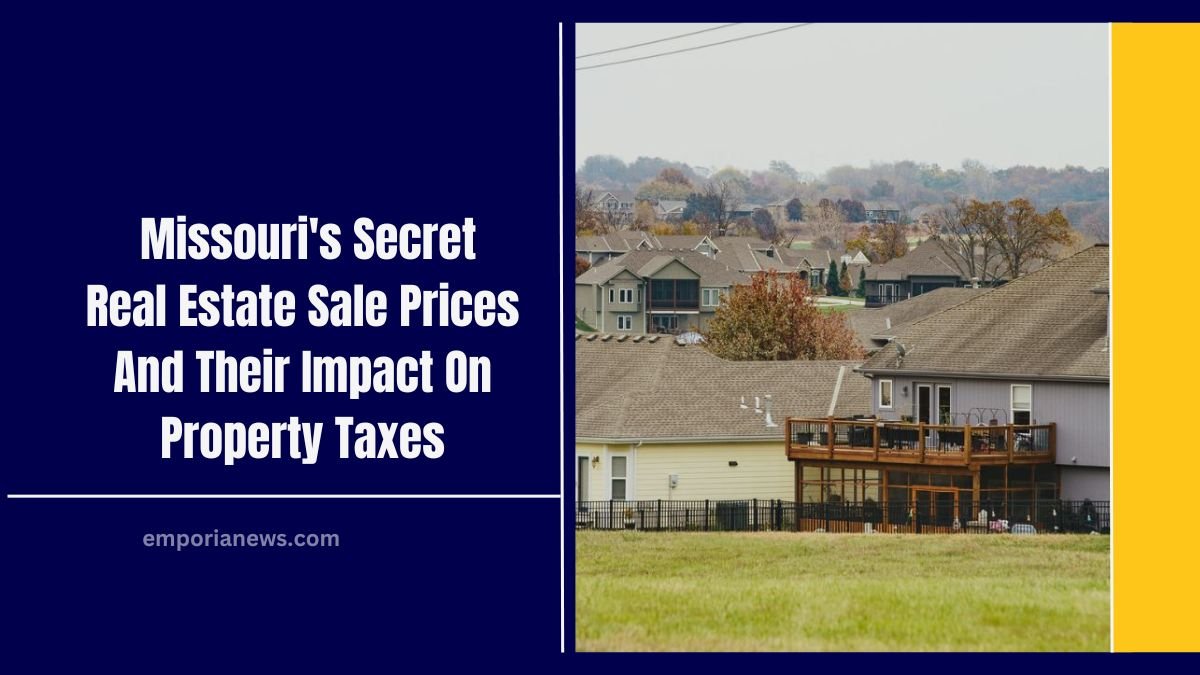In Missouri, a unique challenge complicates the property tax assessment process: real estate sale prices are not publicly disclosed.
This lack of transparency places Missouri among 12 “nondisclosure” states in the U.S., where the actual sale prices of properties remain confidential, known only to the buyer, seller, and select real estate professionals.
The Challenge for Assessors
Every two years, county assessors in Missouri undertake the task of valuing properties for tax purposes. Without access to actual sale prices, they must rely on alternative methods to estimate property values.
For residential properties, assessors might consult multiple listing services (MLS) or knock on doors to gather information.
However, when it comes to large commercial properties, obtaining accurate valuations becomes significantly more challenging due to the absence of transparent sales data.
Implications for Taxpayers
Inaccurate property assessments can lead to unfair tax burdens. If a commercial property is undervalued, the shortfall in tax revenue must be compensated by other property owners, often resulting in higher taxes for homeowners. This discrepancy can strain public services and create inequities within the community.
Legislative Efforts Toward Transparency
Recognizing the need for greater transparency, State Representative Emily Weber has introduced House Bill 579.
This proposed legislation would require buyers to disclose the sale prices of real estate transactions to county officials. Failure to do so would result in a fine amounting to 5% of the property’s sale price.
The goal is to create a comprehensive database of property sales, enabling assessors to perform more accurate and equitable valuations.
Opposition and Privacy Concerns
While the bill aims to enhance fairness in property taxation, it faces opposition from groups concerned about privacy.
The Missouri Realtors association, for instance, argues that buyers and sellers have a right to keep transaction details confidential.
They emphasize the importance of maintaining privacy in real estate dealings and have expressed their intent to monitor the bill’s progress closely.
Comparative Practices
In contrast to Missouri, many states mandate the disclosure of real estate sale prices. This transparency aids in accurate property assessments and ensures a fair distribution of tax responsibilities.
For example, Kansas requires property buyers to submit a questionnaire, including the sales price, to the county appraiser. These records are maintained for five years before being destroyed.
Potential Benefits of Disclosure
Implementing mandatory disclosure of real estate sale prices in Missouri could lead to several benefits:
- Improved Assessment Accuracy: Assessors would have access to actual sales data, leading to more precise property valuations.
- Fair Tax Distribution: Accurate assessments ensure that all property owners pay their fair share of taxes, preventing undue burdens on certain groups.
- Enhanced Public Services: With equitable tax revenue, public services such as schools, libraries, and infrastructure can be adequately funded.
Challenges Ahead
Despite the potential advantages, the path to implementing such a policy is fraught with challenges. Previous attempts to pass similar legislation have stalled, and privacy concerns remain a significant hurdle. Balancing the need for transparency with individual privacy rights will be crucial as the debate continues.
| State | Disclosure Requirement | Impact on Assessments |
|---|---|---|
| Missouri | No | Challenges in accurate property valuations; potential for unfair tax burdens. |
| Kansas | Yes | Access to sales data allows for precise assessments and equitable tax distribution. |
| New Mexico | No | Studies indicate potential inequities in property tax bills due to lack of sales price transparency. |
Note: The information in this table is based on available data as of February 2025.
The secrecy surrounding real estate sale prices in Missouri presents a complex issue with far-reaching implications for property taxation and public services.
As discussions around House Bill 579 unfold, stakeholders must weigh the benefits of transparency against the importance of privacy.
Achieving a balance that ensures fair and accurate property assessments while respecting individual rights will be essential for the state’s future.




